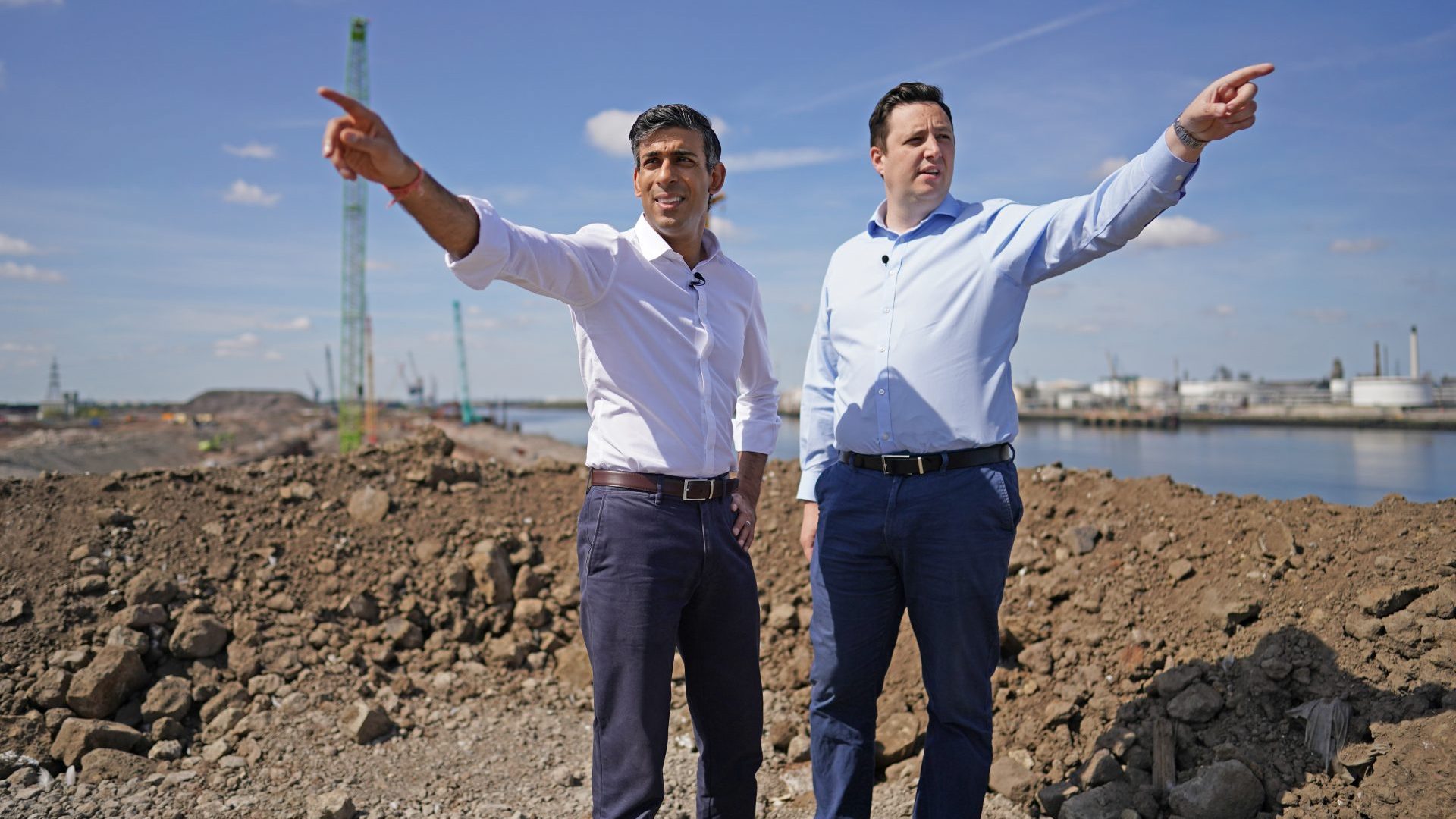The very name “freeport” had just the ring that an ambitious, young, right-of-centre politician could use to launch himself into frontline politics. Along with the smooth exterior and personal wealth to fall back on, Rishi Sunak needed a Big Idea. And for the Brexiteer elected the previous year in a leave-voting seat in North Yorkshire, freeports were it
So it was that in November 2016 Sunak teamed up with the Centre for Policy Studies to present the Freeports Opportunity paper that would announce him as a serious political thinker. Turning our ports into freeports would “provide an almighty boost to British manufacturing” and “fill the sails of the post-Brexit economy”.
Outside the UK’s own customs borders, even if within the country geographically, freeports would enable goods and commodities to be imported tariff-free and refashioned into products incurring lower tariffs when brought into the main economy or re-exported (so-called “tariff inversion”). Sunak took as his inspiration the Aegean island of Delos 2,500 years ago, where “triremes of the ancient Mediterranean – piled high with traders’ wines and olive oils – found safe harbour… [and] respite from import taxes”. Today, he looked to the United States and its 250 “free trade zones”, citing success stories such as Nissan’s vehicle assembly plant in Tennessee. “By using tariff inversion,” he explained, its output had hit 640,000 vehicles a year.
What Sunak had missed, alas, were trade developments in Europe since ancient Delos that make the US a meaningless comparison. Where tariffs are common on imports into the US, they are minimal in Europe and the UK: non-existent within the customs union and, even outside it, trivial on UK imports from EU countries (first under transition arrangements and then under the UK-EU 2021 trade and cooperation agreement). Rolled-forward and new post-Brexit trade agreements with other countries around the world also keep tariffs to a minimum.
Although his freeport model was thus built on an entirely false premise, Sunak arrived at the Treasury in 2019 determined to push the policy through. By the spring of 2021, the eight English freeports had been named (four more in Scotland and Wales are in the pipeline). Foremost among them was Teesside, where regeneration of the former steelworks already under way provided the ideal hard-hatted, high-vis photo-opportunity for a host of government ministers keen to burnish their levelling-up credentials.
Nearly three years on and, with the exception of Teesside, very little has happened at the UK’s freeports. They are struggling even to find ways of spending the £25m “seed funding” handed to them by Whitehall. An ongoing parliamentary inquiry into freeports and investment zones recently heard from Peter Holmes, an academic, that the only business he had been able to identify as benefiting from the freeport advantage of tariff inversion was the dog-food industry. Contacted for this article, Dr Holmes reported excitedly that he has since spotted the quiche-making business as another possibility. A few weeks after his appearance, levelling-up secretary Michael Gove cheerfully accepted the analysis and – whether deliberately or not – undermined Sunak’s freeport rationale by admitting that “very rarely is an investment made on the question of tariffs alone, given how broadly low UK tariffs are”.
The freeport game now, insisted Gove, was about investment incentives. The 2021 cohort were given a range of tax and business rates reliefs lasting five years. But even these are economically impotent, since they simply divert investment from one location to another. Even the much-trumpeted arrival of a Korean wind turbine manufacturer, SeAH, on Teesside came about after it was persuaded there over its initial plan to go to Humberside. The government’s Office for Budget Responsibility has concluded that freeports will probably “alter the location rather than the volume” of investment and that the overall effects would be “difficult to discern even in retrospect”.
The freeport policy has been found to be a waste of time before. An earlier, Thatcher-era iteration finally petered out in 2012 when David Cameron declined to renew their licences. Even in the 1980s, supporters had given the same reason for their failure that they now apply to Brexit: the policy wasn’t wrong; it just wasn’t done properly.
In a 1986 review of the then two-year-old freeports, the Adam Smith Institute’s president, Madsen Pirie – the free marketeer behind their introduction (and that of the poll tax) – wrote that they were struggling because the conditions they were operating under were “far more conservative than those suggested by the economic theory of the world freeport phenomenon”. More than three decades later, a fan of Sunak’s plan, Teesside MP Simon Clarke, put the failure back then down to “an uncharacteristic lack of ambition by the Thatcher government”.
The response to the current freeports already taking on a damp squib appearance thus entails cranking up the taxpayer support. The chancellor, Jeremy Hunt, recently extended the tax breaks to 10 years, in an acknowledgement that the government wasn’t exactly having its hand bitten off by investors. Such was the importance of freeports to Sunak’s rise, however, that the rhetoric must defy this stasis. He regularly touts them as the main “Brexit benefit”. Such investment of political capital then turns what would merely be an economically zero-sum game into something worse. The freeport policy must be seen to be a success at all costs – and the costs can be great.
The consequences can be seen at the flagship Teesside freeport. Regional mayor Ben Houchen, first elected in 2017, had lobbied heavily for the freeport policy before becoming the biggest winner in the Budget 2021 announcement. The new status for his patch meant that a partnership with local businessmen to develop the South Tees former steelworks site was changed to enable the men to profit hugely from property deals – supposedly as an incentive to deliver investment ahead of the then five-year tax breaks deadline.
In a series of articles for Private Eye magazine I have set out how hundreds of millions of pounds of public money has delivered the businessmen unimaginable riches in return for no investment of their own and before any operational new industry appears. In January, a report from a panel appointed by Michael Gove found a litany of governance failings and decisions that “do not meet the standards expected when managing public funds”. As a method for deploying scarce public regional development funds in a targeted and prudent manner, freeports are about as poor as it gets.
At the same time, freeports present serious security risks. Customs and border processes are substantially outsourced to private companies delegated as “responsible authorities”. At Liverpool freeport, for example, the “responsible authority” at one of the two customs sites is a maker of body-building supplements. On Teesside, the authority is a local shipping broker, but physical security at the customs zone perimeter is run by a family firm with a record of tax dodging, employing the owner’s son, who is not long out of jail after an 11-year sentence for serious organised drug crime.
The relative lack of border controls at freeports poses inherent risks – from drug and people smuggling to gun-running, money laundering, wealth concealment and much else. These have long been recognised. The EU clamped down on its version of freeports just before Sunak introduced his, citing a “high incidence of corruption, tax evasion [and] criminal activity”.
Such dangers had been reflected here in the requirement for HMRC and Border Force to audit freeports’ security arrangements, but this has since been watered down to the point that freeport boards will mark their own security homework. A prime minister promising to secure the UK’s borders evidently prefers something lighter-touch for his pet freeports.
At least, for now, the UK’s freeports have not been carved out from the laws of the land. Employment and environmental standards still apply – in theory at least – across a freeport just as they do elsewhere. The UK’s freeports are not “charter cities” making their own laws. But if and when, despite extended investment incentives, the current freeports do not prove transformative, it’s not impossible that a future government could take a step down a road that leads to a surrender of democracy in favour of corporate control – as favoured by many of the same opaquely-funded think tanks that promote freeports. If that ever happens, some time in the future we will yearn for the days when we just had the useless, slightly risky freeports that served little purpose other than providing a vital rung on the career ladder of an unlamented former prime minister.
Richard Brooks is a journalist for Private Eye



